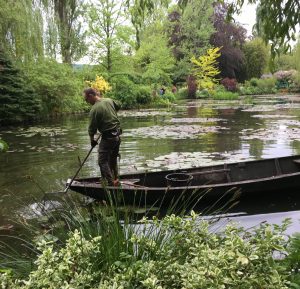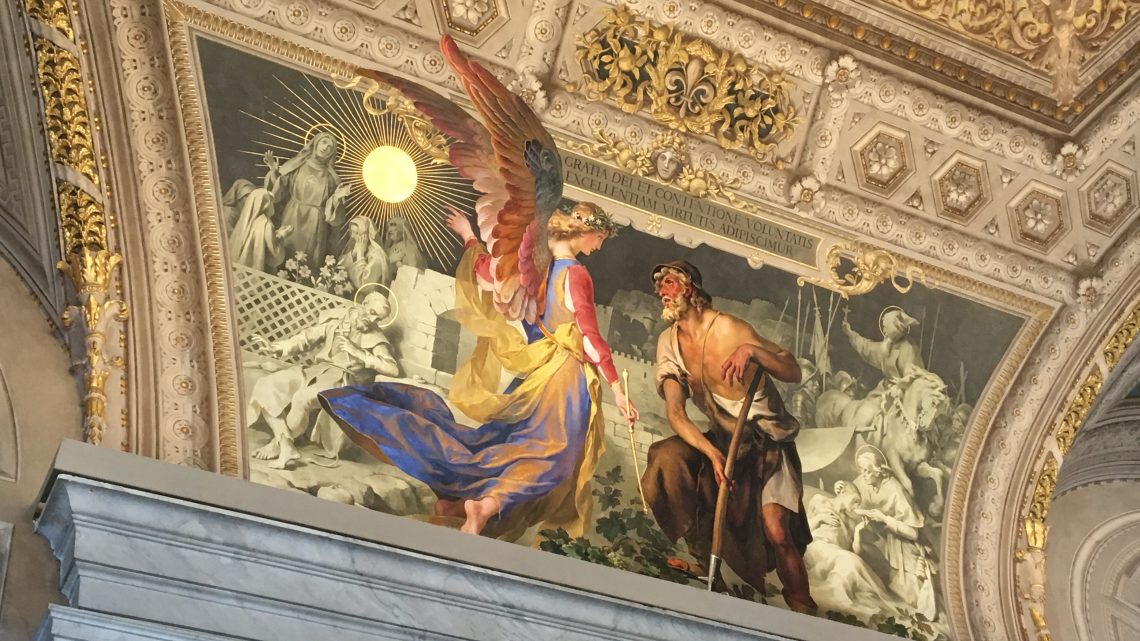This topic is an extension of the previous one about perspective.
While we were in Venice we loved seeing all the canals connecting the islands (118 of them) and the charming homes nestled against the water. Our tour guide, who has lived all her life in Venice and is raising her family there, told us the average home is a 1,000-square-foot apartment costing half a million dollars. So if you’re one of the 57,000 residents of a Venice, and you want to own a home, you choose carefully because you’ll spend your entire life paying for it!
During our visit to the Italian fishing villages (Cinque Terre) we saw rows of apartment buildings that seemed to be growing out of the cliffs around the Mediterranean Sea. The terraces surrounding them were amazing—grape vines, olive trees, lemon trees, vegetable gardens, herbs and flowers everywhere!
The locals could have said “too steep” or “too rocky.” But for hundreds of years they’ve been utilizing every bit of space in these charming villages where the ancient terra cotta roof tiles have turned brown and mossy.
Up, down and around
In Rome, which was the largest (and dirtiest) of the cities we visited, we could have focused on all the trash and missed the grandeur of the incredible architecture around us because we were looking down instead of up.
We could have missed the riot of colorful blooms at the Secret Gardens located in a park overlooking the Piazzo del Popolo if we hadn’t looked past the weeds and untended shrubberies.
We could have focused on the stench of cigarette and cigar smoke that loomed everywhere around us in Europe, and missed the savory smells of oven-baked pizzas and the endless flavors of gelato.
We could have focused on the insanity of Roman drivers. One of our tour guides told us they consider lines on the roads to be decorations and traffic signs and signals as mere suggestions. We could have been so fearful of the craziness of it all that we missed the magnificent views from the buses we rode. Or we could have been limited in our exploration of the city if we were not brave enough to step out into traffic to cross the streets. (We never did see anyone get hit—they will stop for you.)
When we visited the Louvre, the largest museum in the world, we could have felt so overwhelmed by the enormity of it and the sheer value of the collections (estimates range between $30-100 billion) that we missed the intricate details of the paintings, tapestries, wood carvings and marble statues. When we had absorbed all we could for one day, it took us 45 minutes to find our way out, even with a map and stopping three times to ask where we actually were.
If there be any virtue
Despite the ugly, evil things around us in this world, there are still so many good things in life, so much beauty to be enjoyed. As we toured the Claude Monet home and gardens near Giverny in the Normany countryside, the black, rich-looking soil was literally bursting with glorious masses of every color and shape of blooming trees, vines, shrubs and flowers—and it wasn’t even peak season for the gardens.
I like the advice of Paul in Phil. 4:8: “Whatsoever things are pure, whatsoever things are lovely, whatsoever things are of good report; if there be any virtue, and if there be any praise, think on these things.”

The waterway in Monet’s garden is cleaned every day during peak season.










